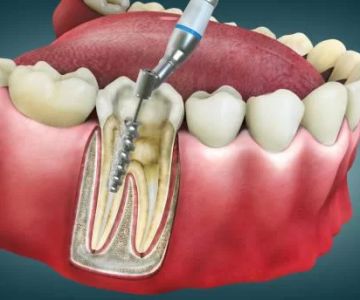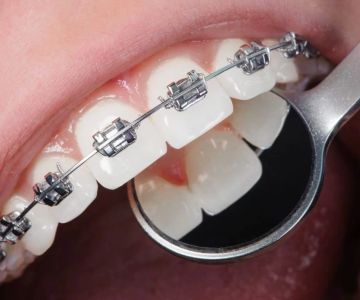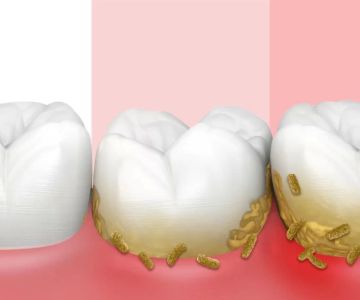How Long Does It Take to Train as a Dentist?
Becoming a dentist is a dream for many, but the path to this rewarding career is often long and challenging. When I first started considering dentistry as a career, I was curious about the amount of time and effort it would take to become a qualified dentist. After doing some research and speaking with professionals in the field, I realized that the journey involves years of education, hands-on training, and a lot of dedication. So, how long does it actually take to train as a dentist? In this article, I’ll walk you through the different stages of becoming a dentist and explain the time commitment at each step.
1. The Undergraduate Degree: 4 Years
The first step in the journey to becoming a dentist is completing an undergraduate degree. This typically takes four years, during which you'll need to focus on courses that prepare you for dental school. Most students pursuing a career in dentistry major in biology, chemistry, or another related field. It's essential to take courses in subjects like anatomy, chemistry, and biology, as these are foundational for dental school. During my undergraduate years, I remember being told repeatedly how crucial it was to maintain a strong GPA, as dental schools are highly competitive.
1.1 Prerequisites for Dental School
While pursuing your undergraduate degree, you will also need to complete specific prerequisites required for dental school. These may include courses in physics, organic chemistry, and biochemistry. Some dental schools may also require students to have volunteer or work experience in a dental office. If you're wondering how to get into a dental school, it’s crucial to plan ahead during your undergraduate years to ensure you meet all the necessary requirements.
2. Dental School: 4 Years
After completing your undergraduate education, the next step is dental school, which typically takes four years. Dental school is a challenging and rigorous program, which is why it's important to be fully prepared. The first two years of dental school generally focus on theoretical knowledge, including subjects like dental anatomy, oral pathology, pharmacology, and patient management. During this time, students spend a significant amount of time in classrooms and laboratories, learning about the science behind dentistry.
2.1 Clinical Experience in Dental School
The last two years of dental school are focused on clinical training. This is where students begin to work directly with patients under the supervision of licensed professionals. I found this to be one of the most rewarding parts of my dental school experience. You get hands-on experience performing procedures such as fillings, crowns, and extractions. This clinical experience is vital for building the skills you’ll need in your future dental practice.
3. Specialization: Additional Time
If you plan on specializing in a particular area of dentistry, such as orthodontics, oral surgery, or pediatric dentistry, you’ll need to complete additional training after dental school. Specializing typically requires an additional 2-6 years of education, depending on the field. For example, orthodontic programs generally take about 2-3 years, while oral surgery programs can take 6 years. These specialized programs are competitive and require an even higher level of commitment, but the rewards are significant. You may need to do additional research or rotations in specialized areas to meet the certification requirements.
3.1 Choosing Your Specialization
When I was in dental school, I spent a lot of time learning about different specialties to help decide which path I wanted to take. It’s important to explore various options, shadow professionals, and do internships to get a real feel for what each specialty involves. Whether you’re interested in cosmetic dentistry, periodontics, or another field, the time you spend specializing will greatly influence the length of your training.
4. Licensing and Certification
Once you’ve completed your dental school education or specialty program, you’ll need to obtain a license to practice as a dentist. This process involves passing a series of exams, including written and clinical tests. The specific exams you must take depend on the state in which you plan to practice. In addition to national exams, states often require a state exam. After passing these exams, you’ll be able to practice dentistry legally. For those pursuing specialization, additional certifications may be required, which can take extra time.
4.1 Maintaining Your License
Being a dentist doesn’t end with receiving your license. Once you’re licensed, you’ll need to participate in continuing education to keep your knowledge current and maintain your license. This means regularly attending courses, workshops, and seminars to stay up-to-date with the latest techniques and technologies in the dental field. For those who specialize, continuing education may also involve additional certifications specific to their area of practice.
5. The Overall Timeline: A Look at the Big Picture
When you add it all up, the total time required to become a dentist is typically around 8 years of education. This includes 4 years for your undergraduate degree and 4 years for dental school. If you choose to specialize, the timeline can extend further, depending on your chosen field. For example, becoming an orthodontist typically takes about 10-11 years, while becoming a pediatric dentist might take closer to 9 years.
5.1 Alternatives and Accelerated Programs
Some dental schools offer accelerated programs, which allow you to complete your undergraduate degree and dental degree in less time. These programs are highly competitive and rigorous but can reduce the overall time to becoming a dentist. Some schools also offer dual-degree programs where you can obtain a dental degree along with a master's or PhD in a related field. While these programs are more intensive, they can be a great option if you’re looking to fast-track your career.
6. Personal Experiences and Expectations
Throughout my journey, I’ve found that becoming a dentist is more than just about academic knowledge. It’s a combination of hands-on experience, patience, and a genuine desire to help others. The time it takes to train as a dentist can be long, but the rewards—both personally and professionally—make it worth every moment. In addition to the academic commitment, the profession also offers personal satisfaction from improving the health and quality of life of your patients.
6.1 My Own Path to Dentistry
Looking back, my path to dentistry has been both challenging and incredibly rewarding. I’ve met numerous people along the way who have supported and inspired me to pursue my dream. The long years of study and hard work paid off when I finally opened my own dental practice. If you’re considering a career in dentistry, I highly recommend it. It’s a fulfilling, respected profession that requires dedication, but the joy of helping others is unmatched.







 Lake Minnetonka Orthodontics
Lake Minnetonka Orthodontics Dr. Joanne Kim Orthodontics
Dr. Joanne Kim Orthodontics Dr. Joe Gordon, DDS
Dr. Joe Gordon, DDS Tebo Orthodontics Cumming
Tebo Orthodontics Cumming Jonesboro Pediatric Dental Group
Jonesboro Pediatric Dental Group Los Coyotes Imaging Center: Le Hanh N DDS
Los Coyotes Imaging Center: Le Hanh N DDS The Importance of Oral Health Education During Pregnancy for a Healthy Pregnancy
The Importance of Oral Health Education During Pregnancy for a Healthy Pregnancy Why Skipping Dental Checkups Can Lead to Bigger Oral Health Problems
Why Skipping Dental Checkups Can Lead to Bigger Oral Health Problems Advantages of Porcelain Dental Restorations
Advantages of Porcelain Dental Restorations Best Tips for Brushing Your Teeth Properly for Healthy Gums: Essential Techniques for Oral Health
Best Tips for Brushing Your Teeth Properly for Healthy Gums: Essential Techniques for Oral Health How Can Diabetes Cause Tooth and Gum Problems? Preventing and Managing Oral Health Issues
How Can Diabetes Cause Tooth and Gum Problems? Preventing and Managing Oral Health Issues Healthy Habits for Promoting Good Oral Health and Hygiene: Tips for a Healthy Smile
Healthy Habits for Promoting Good Oral Health and Hygiene: Tips for a Healthy Smile